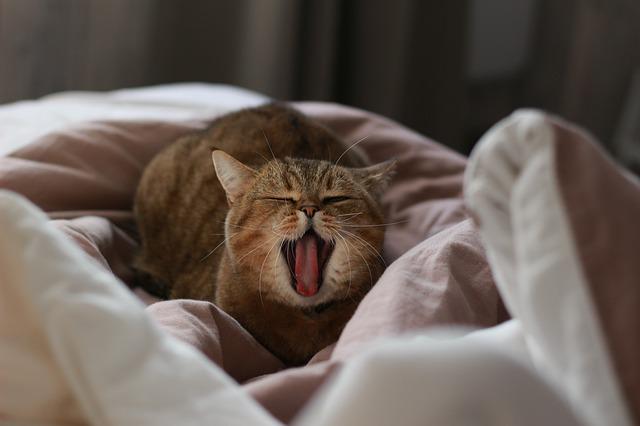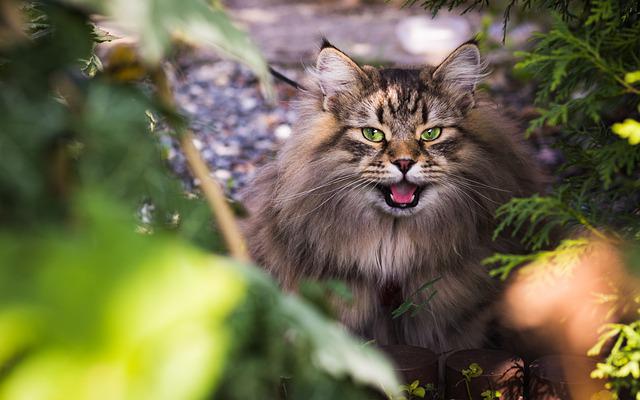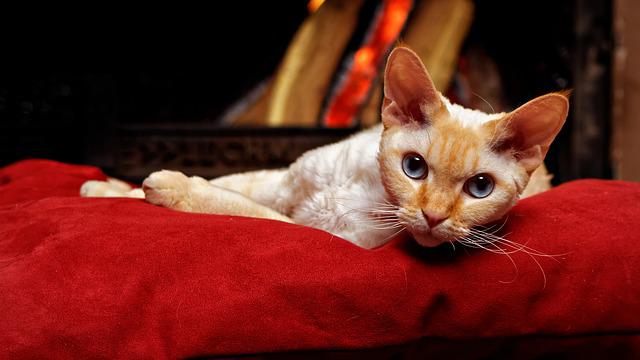Which Cat Breeds Are Hypoallergenic: List of Cats That Triggers Allergies
While no cat breed is 100% hypoallergenic, certain breeds produce fewer allergens than others, making them a good option for people with allergies. Here are some cat breeds that are often considered hypoallergenic:


- Siberian: This breed is known for producing less protein Fel d 1, the main allergen found in cat saliva and skin.
- Balinese: This breed has long, fine fur that produces fewer allergens than other breeds.
- Sphynx: This breed has no fur, producing very little dander, a common allergen.
- Devon Rex: This breed has a unique curly coat that produces less dander than other breeds.
- Cornish Rex: This breed has a fine, short coat that produces less dander than other breeds.
- Oriental Shorthair: This breed has a short, fine coat that produces fewer allergens than other breeds.
- Javanese: This breed has a long, silky coat that produces less dander than other breeds.
- Russian Blue: This breed has a dense, plush coat that produces fewer allergens than other breeds.
- Siamese: This breed has a short, fine coat that produces fewer allergens than other breeds.
Table of Contents
List of Cats That Triggers Allergies
Persian
Persian cats have long, thick coats that can trap allergens like dander, saliva, and urine, making them more likely to trigger allergies in sensitive individuals. However, some people with mild allergies may be able to tolerate Persian cats if they are well-groomed and kept in a clean environment.
Himalayan
Himalayan cats are a crossbreed between Persian and Siamese cats. They have long, thick fur like Persians, which can trap allergens like dander, saliva, and urine, making them more likely to trigger allergies in sensitive individuals. However, some people with mild allergies may be able to tolerate Himalayan cats if they are well-groomed and kept in a clean environment.
Exotic Shorthair
Exotic Shorthair cats have short, dense fur that sheds regularly and can accumulate allergens like dander, saliva, and urine, making them more likely to trigger allergies in sensitive individuals. However, some people with mild allergies may tolerate Exotic Shorthair cats if they are well-groomed and clean.


British Shorthair
The British Shorthair is not considered a hypoallergenic cat breed, as it produces Fel d 1 allergen like most other cat breeds. While some people with allergies may have fewer symptoms around British Shorthairs than other breeds due to their shorter hair, there is no guarantee that they will not experience an allergic reaction.
Scottish Fold
Scottish Folds are not hypoallergenic cats and may trigger allergies in sensitive individuals. While they are known for their distinctive folded ears and charming personalities, their coats produce dander and allergens like other cat breeds.
American Shorthair
American Shorthair cats are not considered hypoallergenic, as they produce the Fel d 1 protein known to cause allergies in sensitive individuals. However, they shed less than other breeds and may be more tolerable for some people with allergies than other cats. It’s important to note that while some breeds may be less likely to cause allergies than others, there is no guarantee that any specific cat will be hypoallergenic or completely allergy-free.
Bengal
Bengal cats are not hypoallergenic, as they produce the Fel d 1 protein in their saliva, skin, and urine, which can trigger allergic reactions in some people. However, some people with milder cat allergies may tolerate Bengal cats better than other breeds due to their shorter coats and reduced shedding.
Birman
Birman cats have a luxurious, medium-length coat that sheds, producing the Fel d 1 protein that can cause allergic reactions in some people. However, they are known for their friendly and affectionate personalities, which may make them a good fit for some people despite their shedding and potential to trigger allergies.
American Shorthair
Tonkinese cats are a breed of domestic cat that is not considered hypoallergenic. They have short, fine coats that require minimal grooming, but they still produce dander and Fel d 1 protein, which can cause allergic reactions in sensitive individuals.
Dealing With Cat Allergies
Use Air Purifiers


Using air purifiers can help reduce cat allergens in the air. Air purifiers with HEPA filters can remove allergens from the air, including cat dander and hair. Place the air purifier in the room where the cat spends most of its time or where the allergic person spends most of their time.
Running the air purifier continuously can help maintain a low level of allergens. However, it’s important to note that air purifiers are not a complete solution and should be combined with other methods to reduce cat allergens.
Bathe Your Cat
Bathing your cat regularly can help reduce the number of allergens in their fur. However, it’s important to note that not all cats enjoy being bathed, so it’s important to introduce them to it gradually and make it a positive experience. Additionally, it’s best to use a shampoo specifically designed for cats, as using human shampoo or soap can irritate their skin.
Use HEPA Filters
HEPA filters are a type of air filter that can remove tiny particles from the air, including pet dander, confirmed with Live Science. Using a HEPA filter in your home can help reduce the number of cat allergens in the air, which can be especially helpful if you have allergies. HEPA filters can be installed in your home’s heating and cooling system or portable units in individual rooms.
It’s important to regularly clean and replace the filters to ensure they continue to work effectively. However, it’s important to note that using a HEPA filter should not be the only measure to manage cat allergies.
Use Antihistamines
Antihistamines can reduce allergy symptoms such as sneezing, runny nose, and itching. Over-the-counter antihistamines such as loratadine (Claritin), cetirizine (Zyrtec), and fexofenadine (Allegra) can be used to help alleviate allergy symptoms. However, it’s important to note that antihistamines can cause drowsiness in some people and may not be effective for everyone. Therefore, it’s best to consult a healthcare provider before taking medication.
